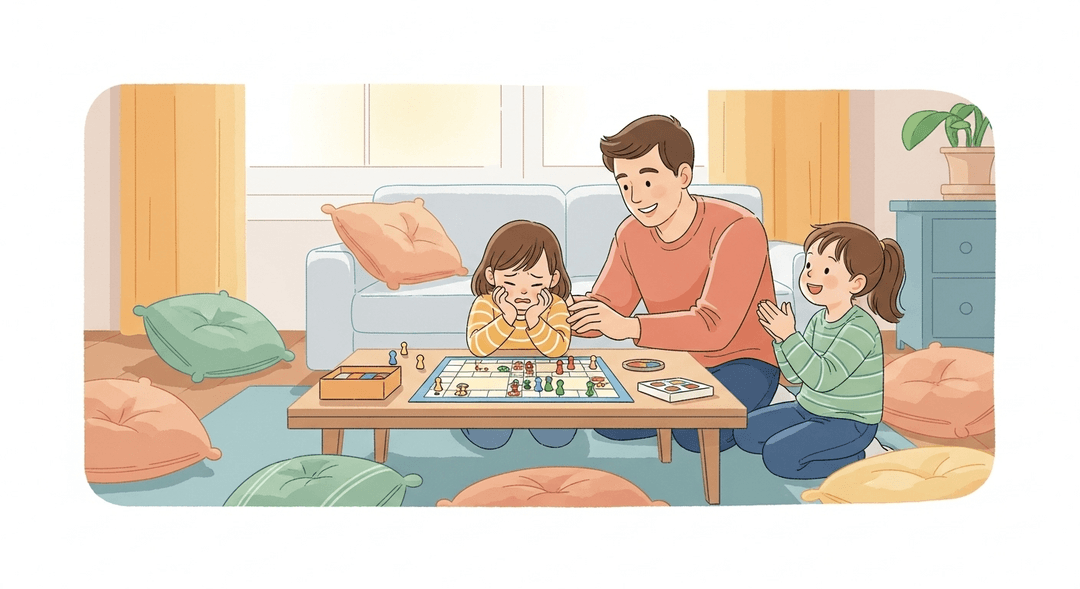Help Them Develop Good Sportsmanship
Ever watched your child morph into a tiny, gloating champion—or the world’s most tragic, sobbing runner-up—over a board game? Sportsmanship: it’s the elusive unicorn of parenting. If you’re tired of refereeing Monopoly meltdowns and want your kid to win (and lose) without an Oscar-worthy performance, this is the chapter for you. Spoiler: grace in defeat doesn’t come in the game box.
Learning good sportsmanship helps kids build emotional resilience, empathy, and self-regulation. It strengthens neural pathways for handling disappointment, managing impulses, and connecting with others—aka, the secret sauce for not turning into a tiny dictator every time things don’t go their way. Plus, it makes playdates way less dramatic (and quieter).
How to do it
-
Narrate your own wins and losses with humor. For example, say things like, "Wow, Dad just lost at UNO again, but look at this excellent losing face!" This helps lighten the mood and shows that it's okay to lose.
-
Model congratulating others, even if you secretly wanted that last cookie. Show genuine happiness for others' successes to encourage good sportsmanship.
-
Practice "good game" handshakes or silly dances after every match, win or lose. Make it a fun ritual that everyone looks forward to, reinforcing that the experience matters more than the outcome.
-
Praise effort and attitude more than the outcome. For instance, say, "I loved how you kept playing, even when it got tough!" This encourages perseverance and a positive mindset.
-
Gently call out gloating or sulking and offer a do-over. If someone is having trouble handling the result, acknowledge it kindly and give them a chance to try again with better sportsmanship.
-
Keep games short and sweet to avoid meltdown territory. Shorter games help maintain enthusiasm and prevent frustration from building up.
Key Tips:
- Use humor to diffuse disappointment.
- Celebrate everyone's efforts, not just victories.
- Make post-game rituals fun and inclusive.
- Focus on attitude and persistence.
- Address negative reactions gently and constructively.
- End games before frustration sets in.
